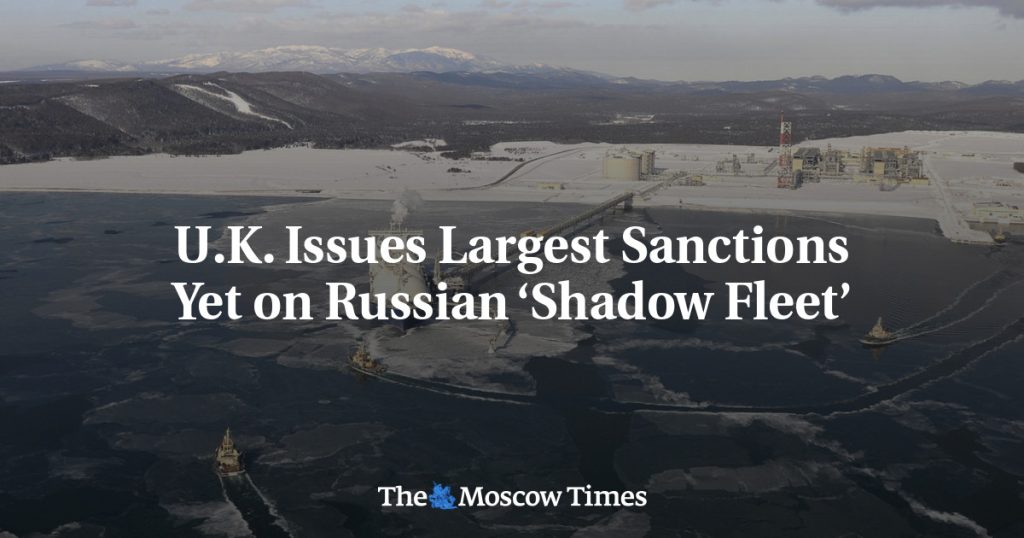Britain has imposed its largest sanctions to date against Russia’s “shadow fleet” of tankers to prevent the country from sidestepping a Western embargo on oil exports following its invasion of Ukraine. The sanctions target 18 ships, bringing the total number of vessels banned from U.K. ports and services to 43. The shadow fleet, with opaque ownership and lack of proper insurance, has enabled Russia to continue selling oil despite sanctions and price caps on global sales. The U.K. also accused the shadow fleet of posing environmental and safety threats due to its disregard for basic standards.
Foreign Secretary David Lammy has described his mission as one to constrain the Kremlin and close in on Putin and his government using all available tools. However, a report by the Kyiv School of Economics revealed that the volume of Russian oil exported through shadow tankers had nearly doubled to 4.1 million barrels per day as of June this year. Despite Western sanctions, 70% of Russian oil exports by sea were carried out using ghost tankers. The sanctions package also includes ships owned by Sovcomflot, Russia’s largest shipping company, as well as LNG tankers and Russian gas company Rusgazdobycha JSC.
The latest U.K. sanctions were imposed to starve Putin’s war machine of crucial revenues and prevent the Kremlin from evading sanctions to continue its activities. As a result of these sanctions, many of the targeted ships have been forced to idle outside ports, rendering them useless. The government has taken a strong stance against the shadow fleet, which has enabled Russia to circumvent sanctions and continue selling oil despite global efforts to curb its activities. The sanctions are intended to not only restrict Russia’s ability to profit from oil sales but also to highlight the environmental and safety risks posed by the shadow fleet’s operations.
The shadow fleet, characterized by opaque ownership and lack of proper insurance, has allowed Russia to maintain its oil exports despite facing restrictions and price caps imposed by Western countries. This has been a significant concern for countries like the U.K., which have imposed sanctions to prevent Russia from evading these measures. The sanctions aim to cut off crucial revenues to Putin’s government and limit its ability to sustain its war efforts in Ukraine. The sanctions also target key players in the Russian shipping and gas industries, further restricting Russia’s ability to profit from oil and gas exports.
The U.K.’s Foreign Commonwealth and Development Office (FCDO) has taken a strong stance against the shadow fleet, highlighting the risks it poses to the environment and coastlines due to its disregard for safety standards. By imposing sanctions on these vessels and companies involved in the shadow fleet, the U.K. aims to send a clear message to Russia about the consequences of evading sanctions and engaging in illicit activities. The government’s efforts to crack down on the shadow fleet align with broader international goals to hold Russia accountable for its actions in Ukraine and prevent further escalation of the conflict through economic measures.
The sanctions imposed by the U.K. are part of a broader international effort to address Russia’s continued aggression and destabilizing actions in Ukraine. By targeting the shadow fleet and key players in the Russian oil and gas industries, the U.K. aims to cut off crucial revenues to the Kremlin and limit its ability to sustain its military activities. These measures are designed to send a clear message to Russia about the consequences of its actions and to prevent further escalation of the conflict. The U.K. remains committed to supporting Ukraine and upholding international norms and rules in the face of Russian aggression.














